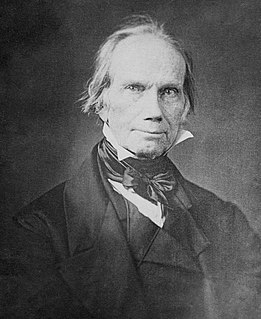A Quote by Alexander Hamilton
The means ought to be proportioned to the end; the persons from whose agency the attainment of any end is expected ought to possess the means by which it is to be attained.
Related Quotes
You think the end justifies the means, however vile. I tell you: the end is the means by which you achieve it. Today's step is tomorrow's life. Great ends cannot be attained by base means. You've proved that in all your social upheavals. The meanness and inhumanity of the means make you mean and inhuman and make the end unattainable.
Religion means goal and way, politics implies end and means. The political end is recognizable by the fact that it may be attained--in success--and its attainment is historically recorded. The religious goal remains, even in man's highest experiences, that which simply provides direction on the mortal way; it never enters into historical consummation.
We are so anxious to achieve some particular end that we never pay attention to the psycho-physical means whereby that end is to be gained. So far as we are concerned, any old means is good enough. But the nature of the universe is such that ends can never justify the means. On the contrary, the means always determine the end.
I want us to organize, to tell the personal stories that create empathy, which is the most revolutionary emotion. The truth of the mater is that hierarchy and violence can't be remedied by more hierarchy and violence. The end doesn't justify the means, the means we choose decide the end we get. The means are the end.
People ... become so preoccupied with the means by which an end is achieved, as eventually to mistake it for the end. Just as money, which is a means of satisfying wants, comes to be regarded by a miser as the sole thing to be worked for, leaving the wants unsatisfied; so the conduct men have found preferable because most conducive to happiness, has come to be thought of as intrinsically preferable: not only to be made a proximate end (which it should be), but to be made an ultimate end, to the exclusion of the true ultimate end.
Acquisition of knowledge is not the end, but the means to the end; the end consists in the attainment, thanks to this knowledge of the higher worlds, of greater and truer self-confidence, a higher degree of courage, and a magnanimity and perseverance such as cannot, as a rule, be acquired in the lower world.
Living in the now is freedom from all problems connected with time. You ought to remember that sentence, you ought to memorize it, and ought to take it out, you ought to practice it, you ought to apply it. And most of all, you ought to rejoice in it because you have just heard how not to be wretched, miserable you any more but to be a brand new, and forever brand new man or woman.
That man is formed for social life is an observation which, upon our first inquiry, presents itself immediately to our view, and our reason approves that wise and generous principle which actuated the first founders of civil government, an institution which hat its origin in the weakness of individuals, and hath for its end the strength and security of all; and so long as the means of effecting this important end are thoroughly known and religiously attended to government is one of the richest blessings to mankind, and ought to be held in the highest veneration
In all cases where incidental powers are acted upon, the principal and incidental ought to be congenial with each other, and partake of a common nature. The incidental power ought to be strictly subordinate and limited to the end proposed to be obtained by the specified power. In other words, under the name of accomplishing one object which is specified, the power implied ought not to be made to embrace other objects, which are not specified in the constitution.
We live in a free society, and freedom means freedom for everybody. We shouldn't be able to choose and say, 'You get to live free and you don't.' That means people should be free to enter into any kind of relationship they want to enter into. Like Joe (Lieberman), I'm also wrestling with the extent to which there ought to be legal sanction of those relationships. I think we ought to do everything we can to tolerate and accommodate whatever kind of relationships people want to enter into.

































